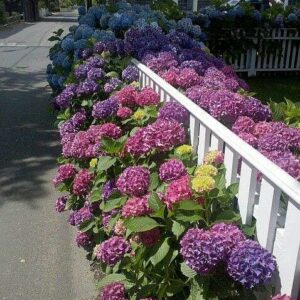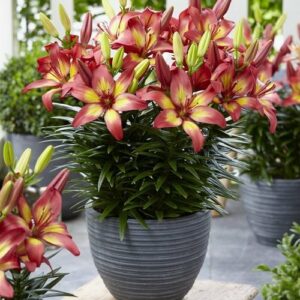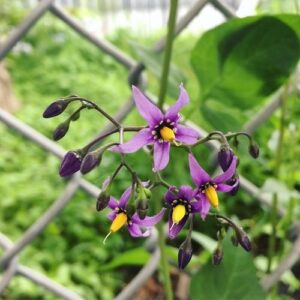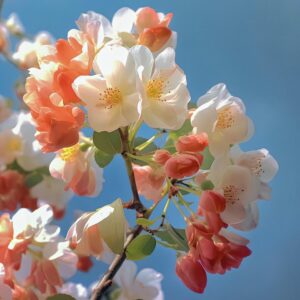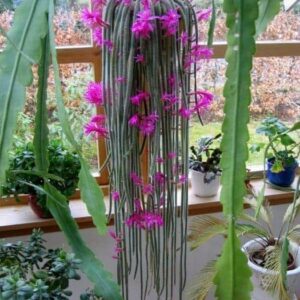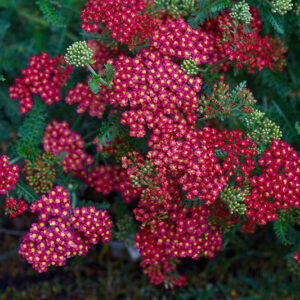The “language of flowers” or Floriography has been around since the publication of the book ‘Le Langage des Fleurs’ in 1819. Even though it’s commonly associated with the Victorian era, people have been using flowers to convey secret messages for centuries. Today, this romantic form of communication can still be used to create beautiful bouquets, bridal arrangements, and floral displays to express hidden sentiments to loved ones.
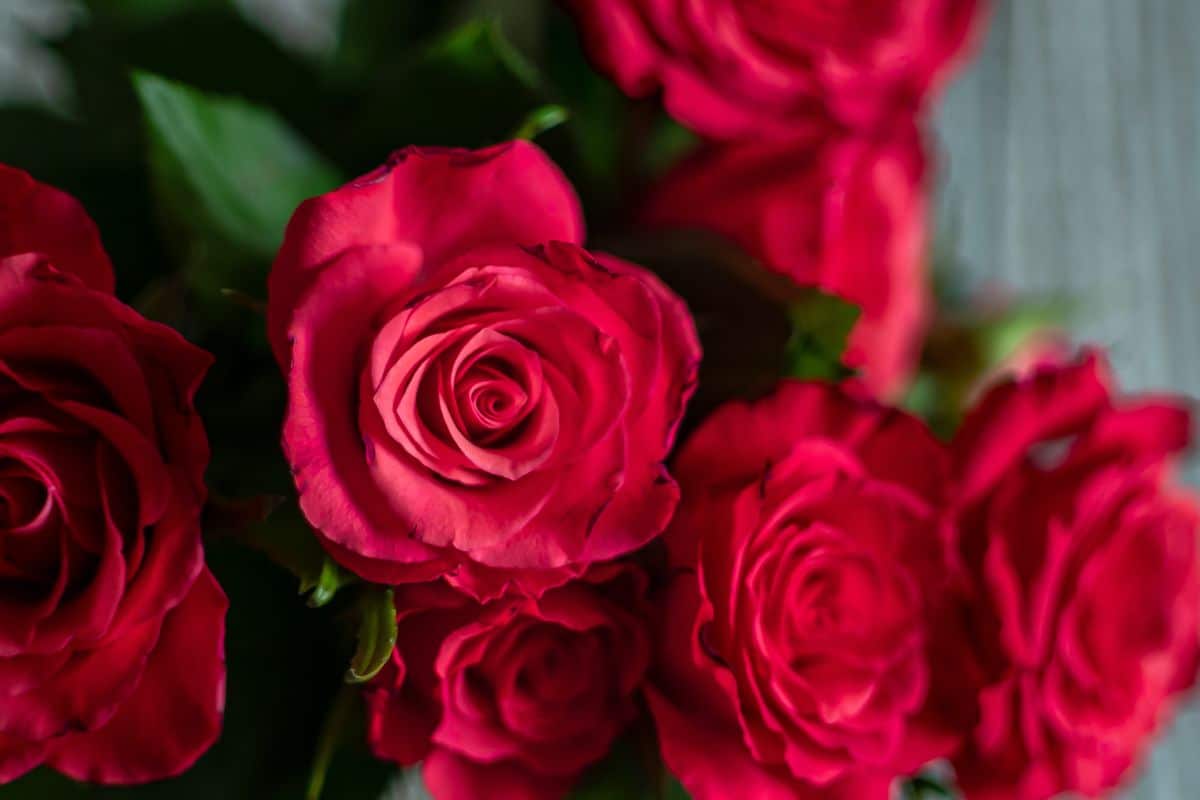
If you are interested in adding more depth and meaning to your life, you may want to explore the language of flowers. Flowers can be used to convey both positive and negative emotions, and there is a lot of symbolism to learn. While there are many resources available on floriography, this quick guide will introduce you to 25 popular flowers that communicate love. From Arborvitae to Yarrow, each plant on this list has a message to share. So, if you want to say “I love you” in a unique and special way, consider adding one of these flowers to your bouquet.
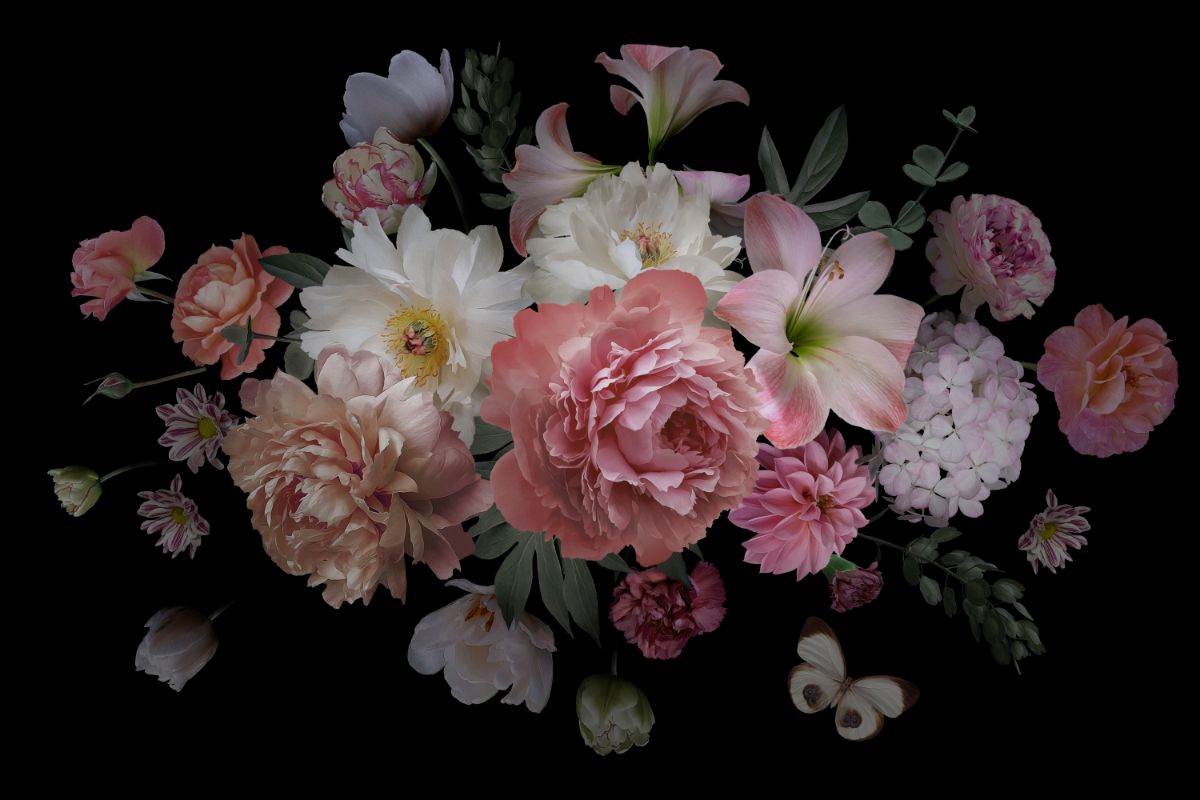
Looking for a unique way to express your love? Why not let nature help you out? Show your affection by gifting your loved one with a beautiful plant or bouquet of flowers that symbolizes your feelings. The meaning behind plants and flowers can vary, depending on their physical attributes and the way they grow. For example, climbing plants like ivy and honeysuckle represent faithfulness and lasting commitment. Additionally, the color of the flower can also convey different meanings, so choose wisely when creating your bouquet. One option to consider is the Arborvitae plant, which represents strength and loyalty.
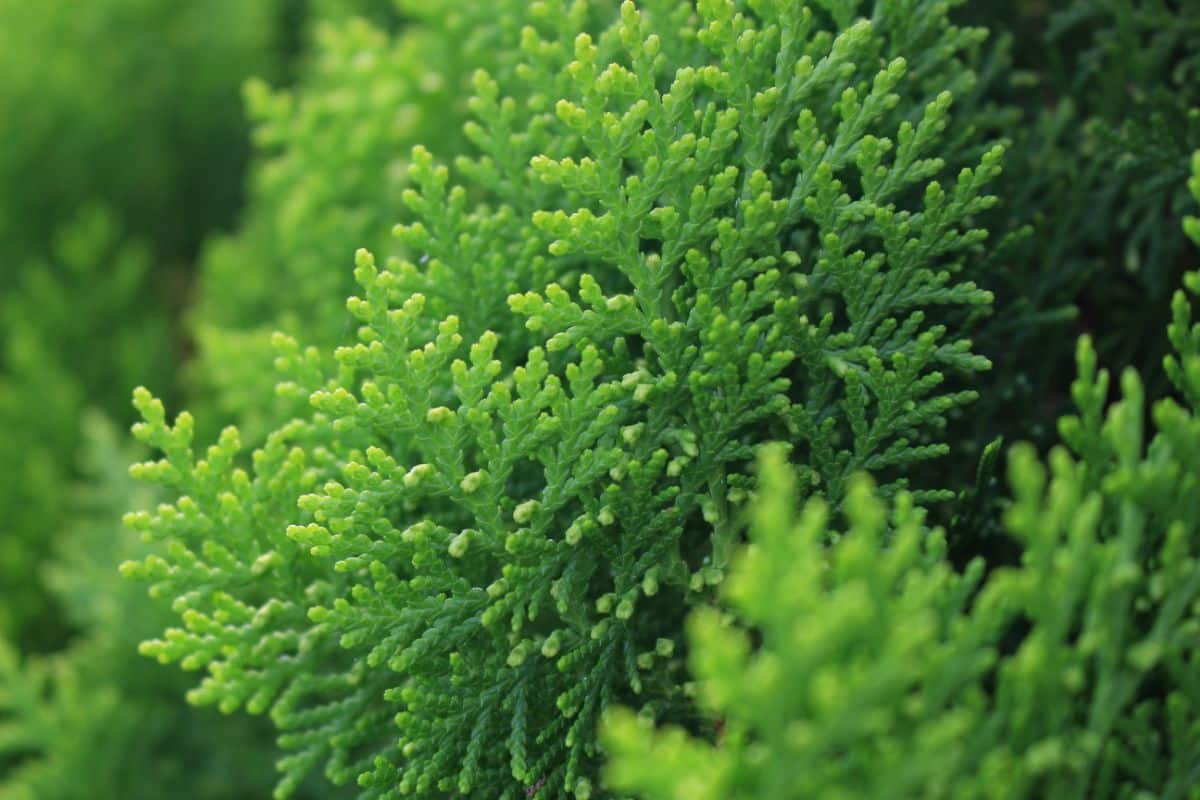
The symbolic meaning of arborvitae in floriography is that of platonic love and friendship. While many flowers and plants are used to express romantic love, the evergreen arborvitae is often chosen to represent the enduring and steadfast nature of true friendship. This tree grows quickly and remains green throughout the year, providing a sheltering presence like that of a trusted friend. Arborvitae is commonly used for landscaping purposes to offer privacy and create living screens around gardens and yards, with the ability to grow up to 30 feet tall at a rate of about 1 foot per year. Including arborvitae cuttings in a bouquet is a beautiful way to convey the message, “I value our friendship.”
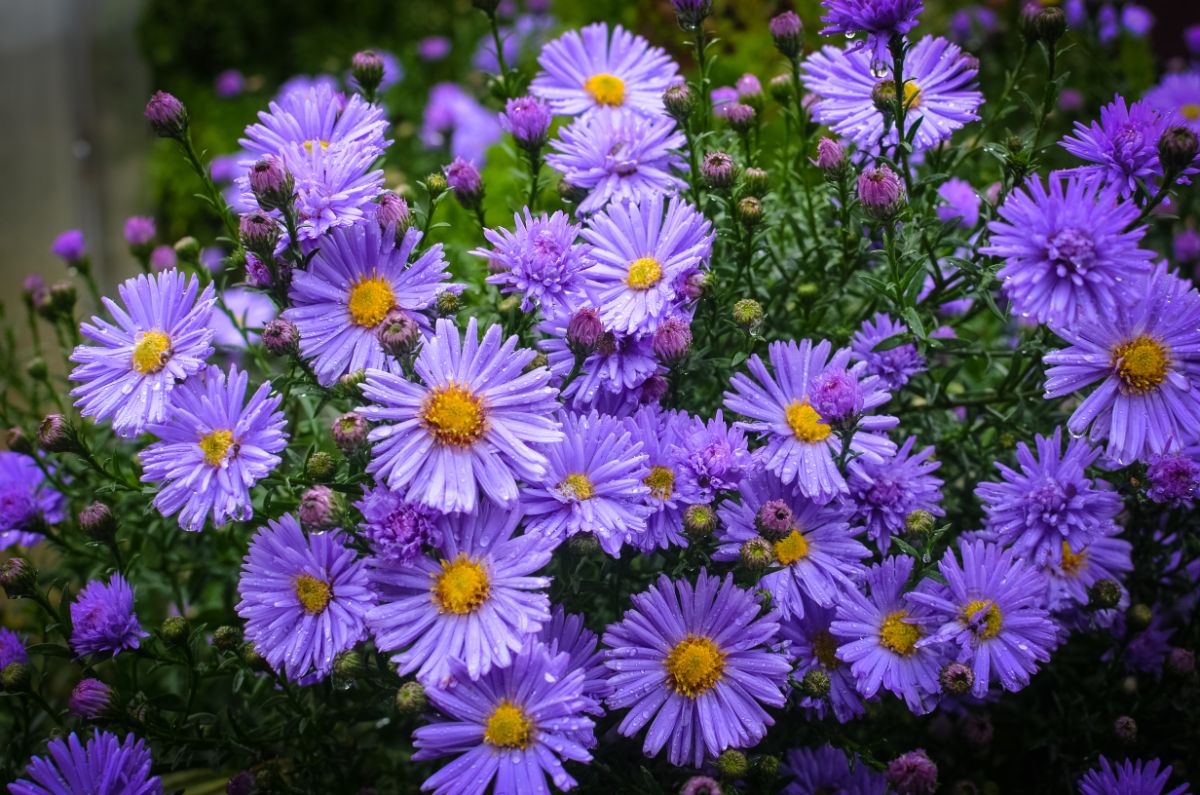
According to symbolism, if you give or receive asters, it means that your love is worth waiting for. Asters are available in various colors like white, purple, and pink, and they are commonly seen in autumn gardens, where their delicate petals add charm to the surroundings. They are associated with fragility and enduring love as one has to wait patiently for their blooms. Besides being a beautiful garden flower, asters are also used in bouquets to symbolize a love that’s worth waiting for. If you’re lucky, you may already have wild asters growing in your garden, but if not, you can always grow them from seeds and keep them in your cutting beds. A combination of asters and goldenrod, another autumn favorite, creates a stunning display in your garden.
Moving on to baby’s breath…
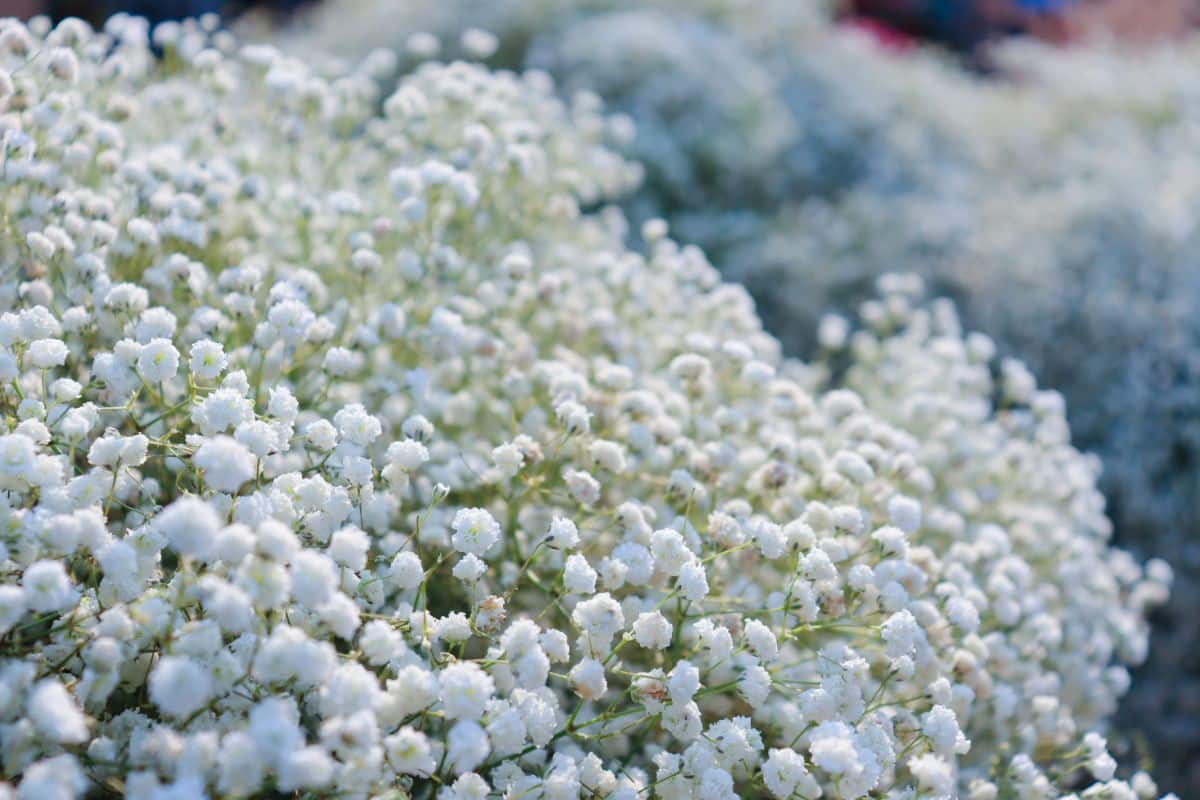
The flower known as baby’s breath is a symbol of eternal love, making it a popular addition to floral arrangements and bouquets especially during Valentine’s Day. Though not as commonly grown in gardens, this plant can still be a charming addition with its delicate sprays of flowers. Baby’s breath requires dry soil and is relatively low-maintenance. If you’re looking to save on wedding costs, consider growing your own baby’s breath for a budget-friendly bridal bouquet. Another plant to keep in mind is basil.
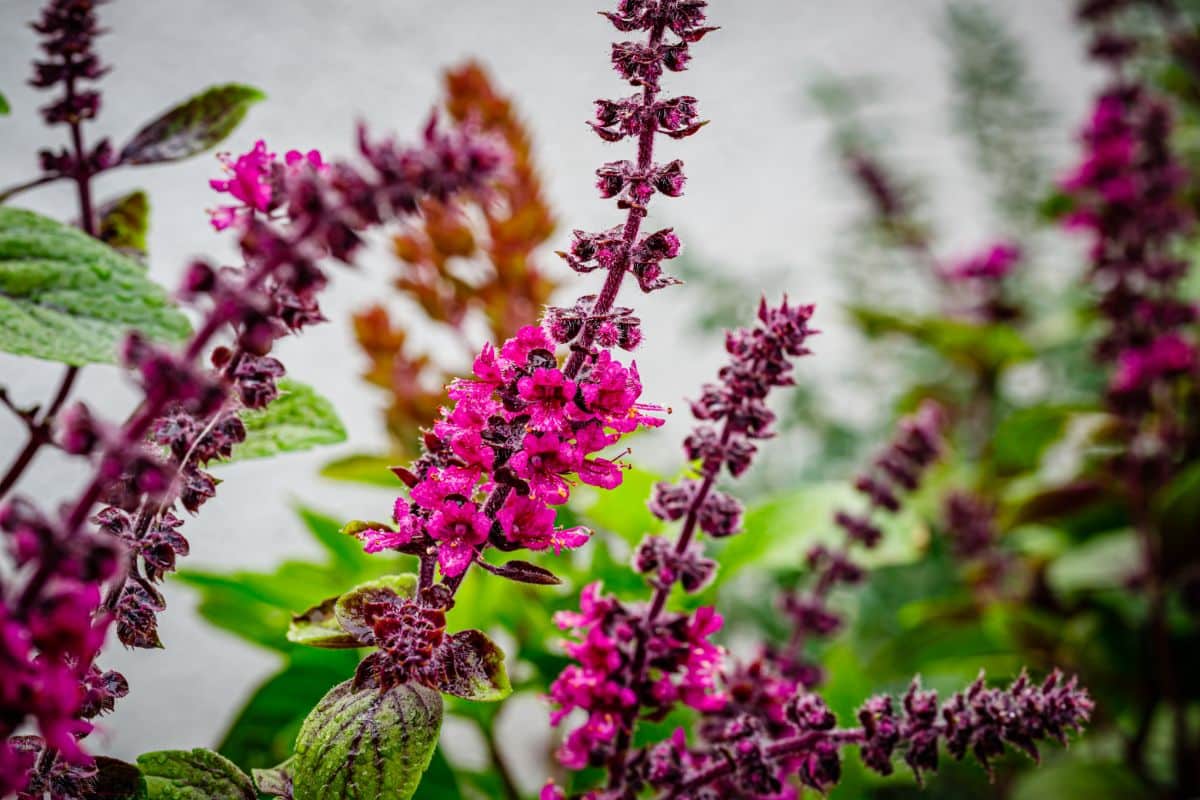
Basil is more than just a versatile herb in the kitchen, it also has a place in the world of floral design. However, before including basil in your arrangement, it’s important to consider cultural implications. While some cultures associate basil with love, others associate it with hate. Overall, basil leaves and flowers are generally used to express good wishes in the language of flowers. Though some interpretation may be required, basil is a great addition to any bouquet. Certain types of basil, such as holy basil, Thai basil, and purple basil, not only taste great but also make for aesthetically pleasing plants that will fit right at home in a flower vase. And don’t forget, you can always use basil to whip up a homemade pesto to wish your loved ones well too! Finally, there are other flowers that have symbolic meanings like camellia.
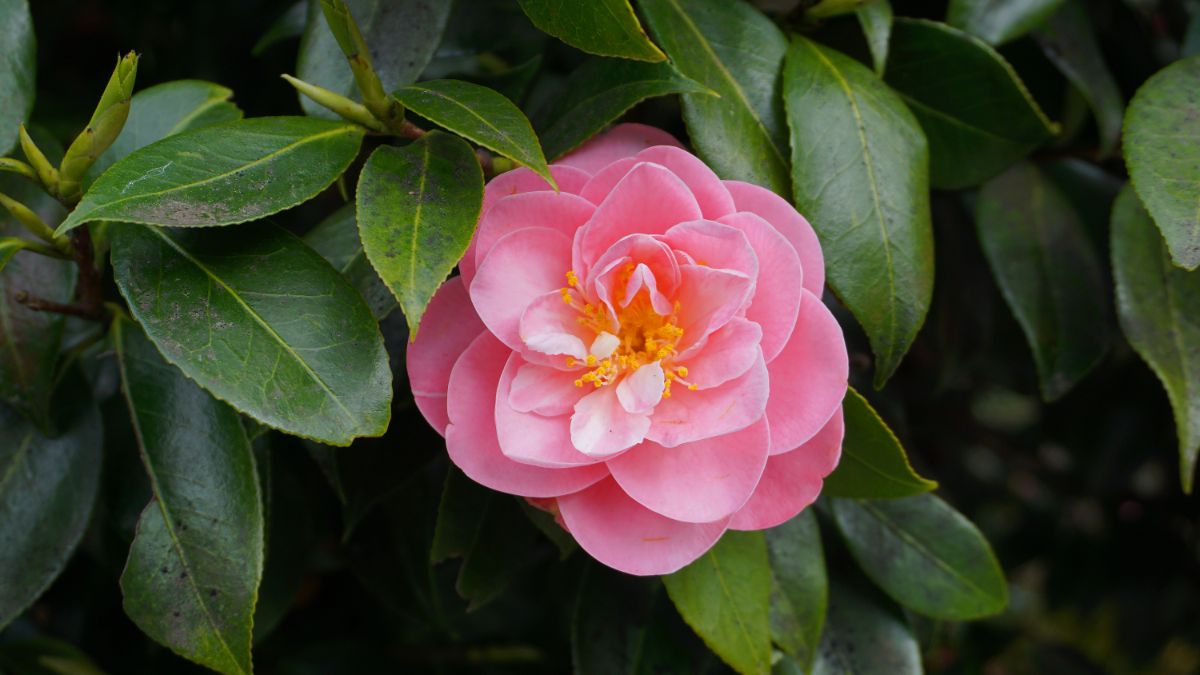
The camellia flower carries a wide range of emotions, from fondness to yearning to love. While they are commonly found in southern gardens, they may be difficult to sustain in colder climates as they only bloom annually in zones 7 to 10. Nevertheless, if you can get your hands on some camellia blossoms, they can convey a variety of different feelings in bouquets. The color of the petals is crucial when working with camellia flowers. In the language of flowers, pink camellias signify longing, while red camellias represent a more intense and passionate form of adoration, like an ignited flame in your heart. On the other hand, white camellias represent a pure and innocent infatuation, which can be used to express a liking for someone. With so many meanings associated with this flower, creating a multi-colored bouquet of camellias seems like an ideal choice!
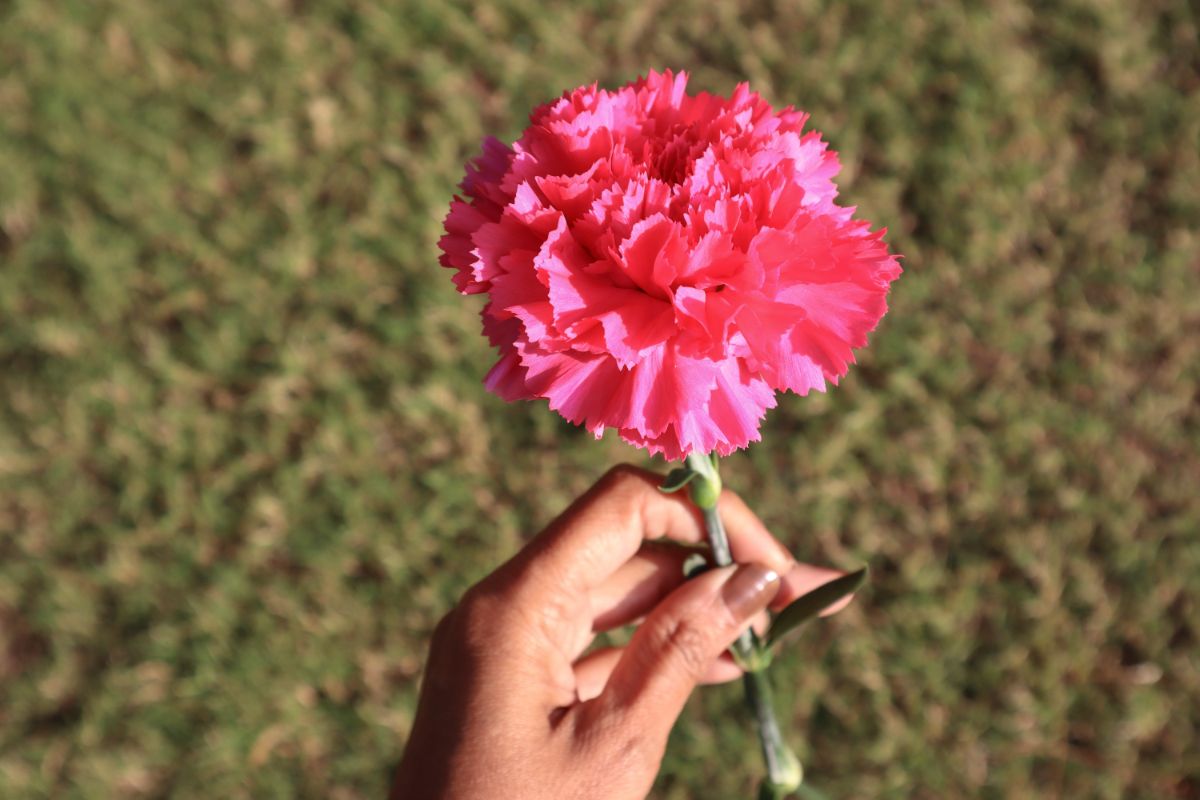
When using carnations in floriography, it’s crucial to consider the color of the flower. Similar to camellias, different colors of carnation blooms can convey positive or negative emotions. If you’re aiming to express affection, it’s best to avoid striped or yellow carnations as they symbolize negative feelings. While red carnations are a mixed bag, they can represent both deep love and heartache. White carnations represent pure and innocent love, whereas pink carnations convey the message of “I’ll never forget you.” As for red chrysanthemums, their symbolism varies across cultures and contexts, so it’s important to research their meaning before using them in your floral arrangements.
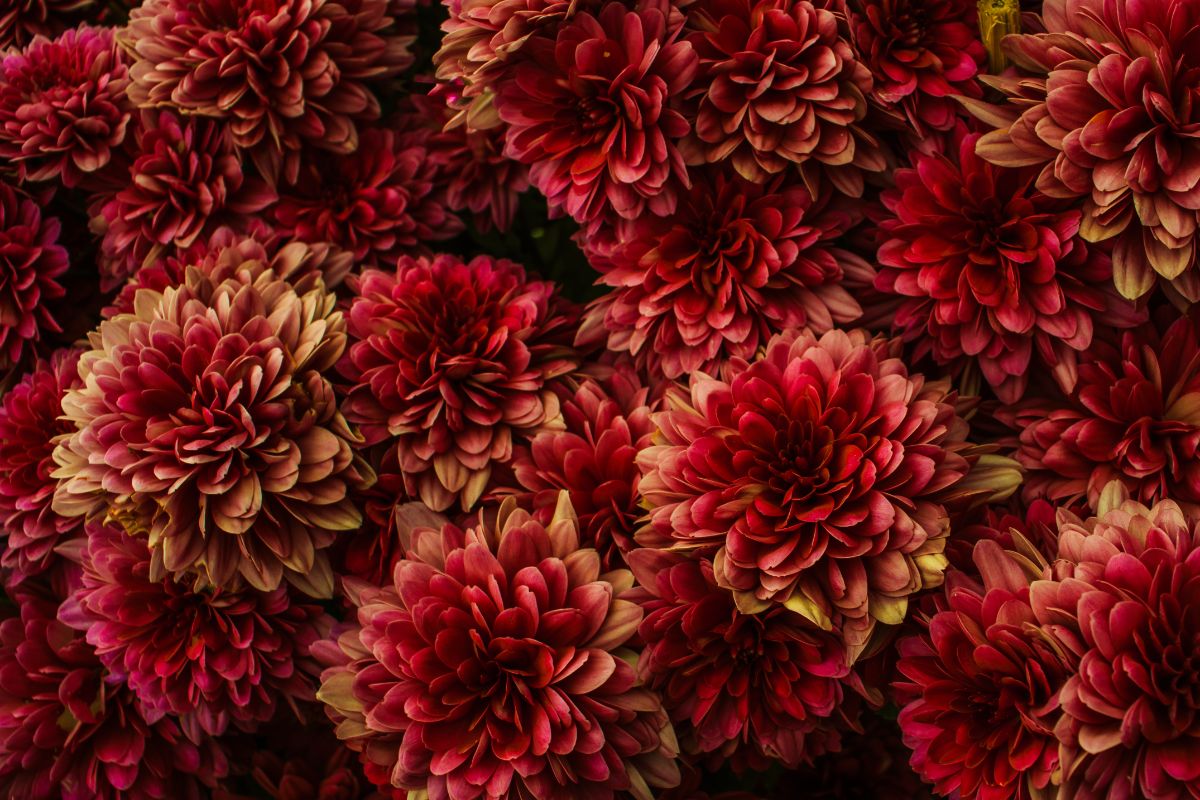
The meaning behind red chrysanthemums is clear and straightforward – they symbolize pure and simple love. These popular container garden plants are especially abundant during the fall season, as their vibrant blooms complement the colorful autumn leaves. While mums can be grown in garden beds, they are a top choice for cutting gardens if you want to convey a subtle message of love to your significant other. When it comes to floriography, red chrysanthemums are the go-to choice for expressing love. In contrast, yellow chrysanthemums signify love that has gone wrong. Lastly, daffodils are another flower with a special message – they symbolize new beginnings and the arrival of spring.
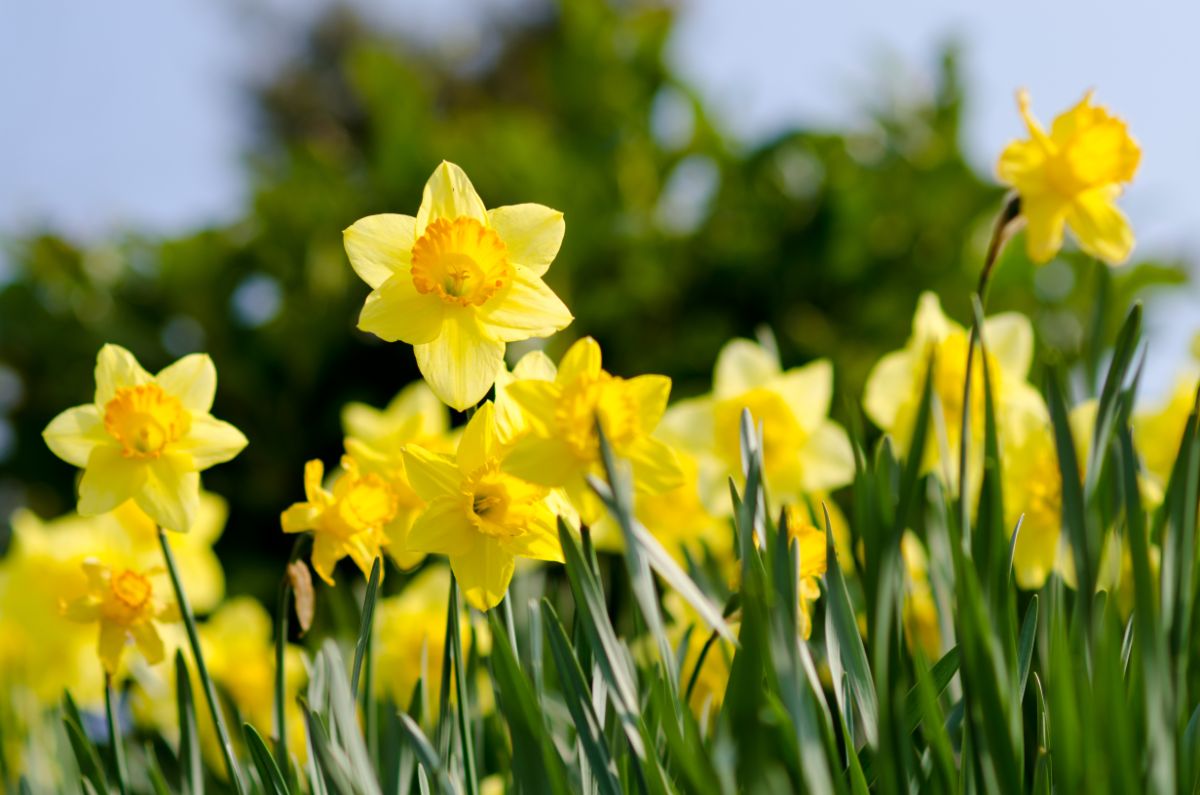
The concept of infinite love is beautifully represented by the charming daffodil flower. During the arrival of spring season, daffodils are among the first to bloom in cutting gardens, making them a popular choice for floral arrangements. However, if you want to express affection towards someone, presenting them with a fresh bouquet of daffodils is an excellent option as it symbolizes boundless love and admiration. Growing daffodils can be relatively easy, but the timing is crucial if you desire to witness their blooms during springtime. It is recommended to plant daffodil bulbs in autumn and allow them to overwinter outdoors. To create a striking garden display, plant daffodil bulbs in large groupings consisting of at least 10 to 15 bulbs each.
Lastly, daisy is another beautiful flower that holds significant meaning, and it symbolizes purity, innocence, and new beginnings.
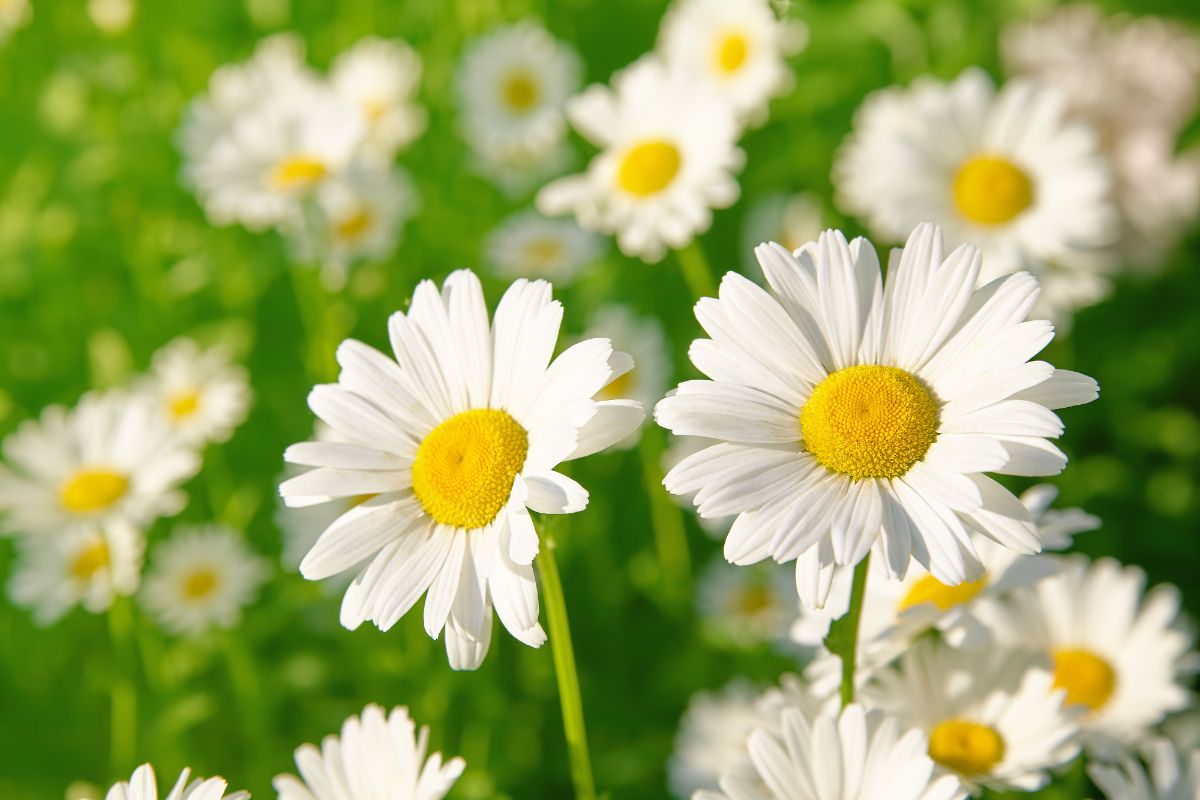
The charming and laid-back nature of daisies makes them a popular choice among flower enthusiasts. These flowers hold various meanings that can convey distinct messages, such as innocence, faithfulness, and secrets. In the language of flowers, daisies are often associated with pure and faithful love, as well as keeping confidential matters between partners. You can opt to use daisies alone in a floral arrangement or combine them with other symbolic plants, like baby’s breath, to express a loyal and affectionate love.
Apart from making small hand bouquets, daisies can also be fashioned into lovely daisy chains or flower crowns. If you wish to preserve your garden blooms, you can also press daisies to enjoy their beauty for an extended period. Another flower that holds significance is forget-me-nots, which symbolizes enduring love and remembrance.
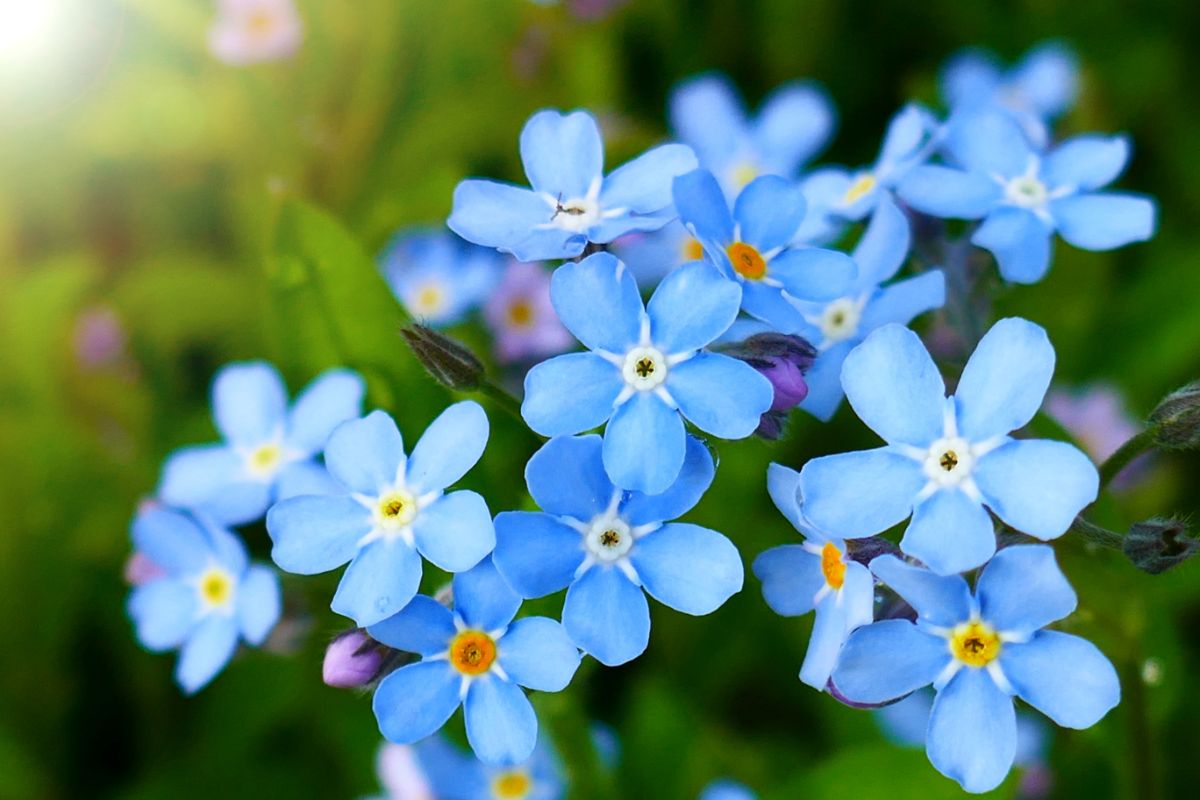
The forget me not flower carries a clear message with its name and symbolizes everlasting love and cherished memories, urging the receiver to always remember the giver. These dainty flowers are uncomplicated to grow from seeds, eliminating the need to purchase pricier pre-started plants. A fascinating aspect of the forget me not is its ability to change colors as it blossoms – starting with a soft, pale hue, transitioning to a rosy pink before maturing into a striking blue tint.
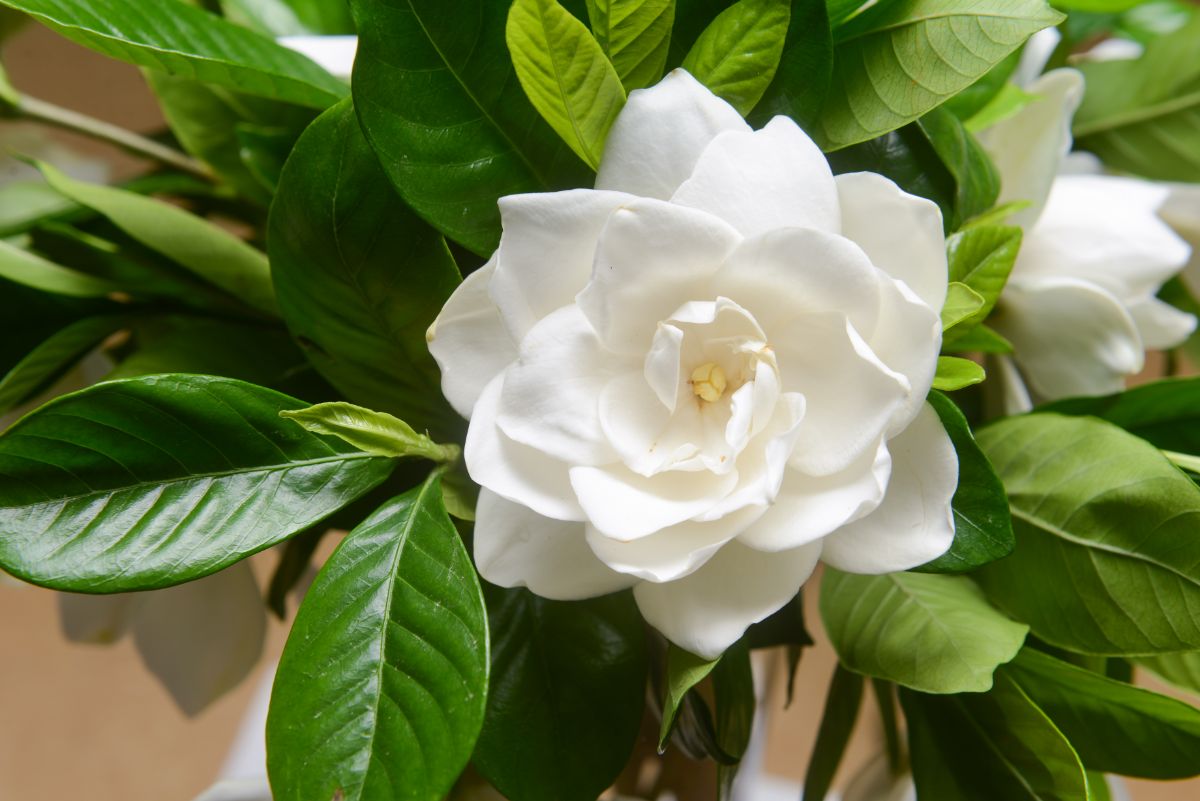
If you want to express your admiration for someone secretly, consider sending them gardenias. These plants thrive in warmer climates, specifically growing zones 8 to 11, and produce beautiful white flowers with a captivating scent that can enhance any garden. Gardenia blooms are often linked with representing hidden love, but they can also serve as a message to a special someone that they hold a unique place in your heart. Unfortunately, gardenia blooms don’t last very long, typically fading after 2 to 4 days. So, make sure to appreciate them while they’re still fresh. Another lovely option to consider is globe amaranth.
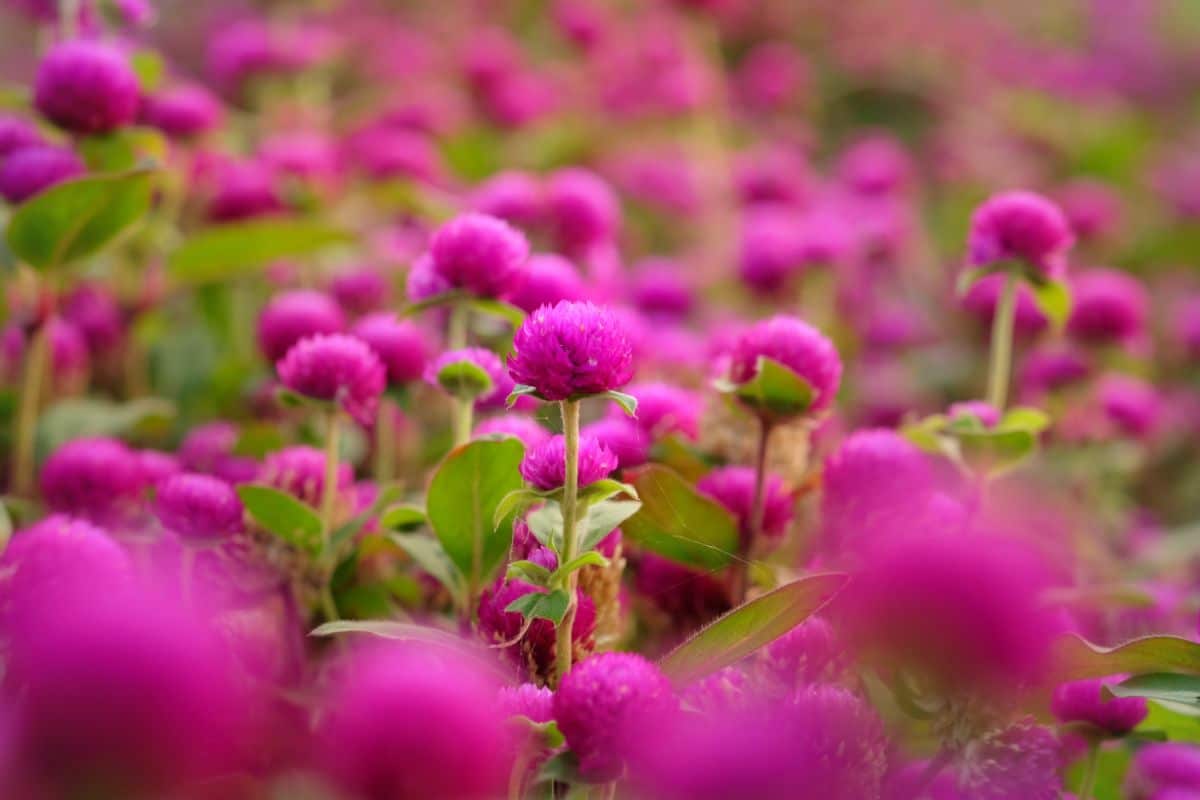
When it comes to expressing everlasting love or enduring affection, globe amaranth is the perfect choice. This plant has been a symbol of eternity and immortality for generations, and its small size makes it a great option for container gardens or as a border plant in garden beds. Globe amaranth also makes a beautiful addition to bouquets, conveying a message of lasting love and endurance. It’s an obvious pick for bridal arrangements, but can also be used for anniversary bouquets. Another flower that can communicate love is heliotrope.
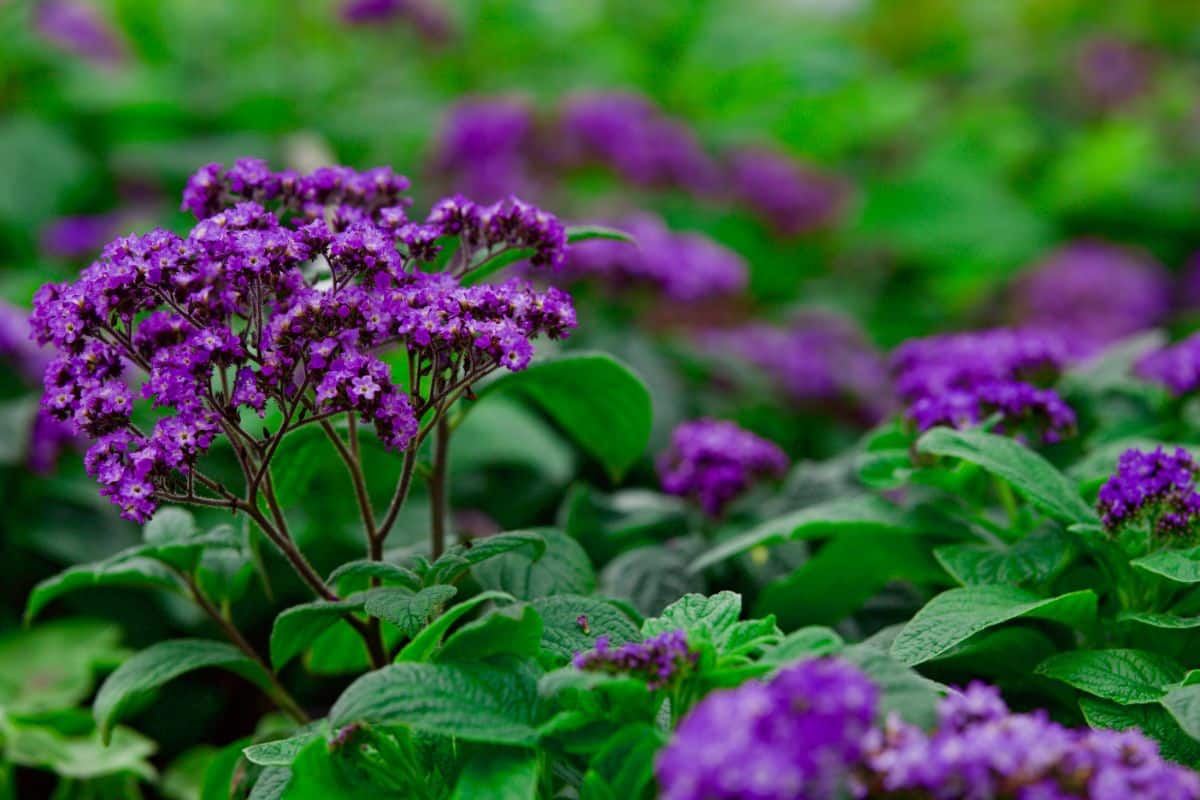
If you’re searching for a plant that embodies devotion and long-lasting love, look no further than heliotropes. These beautiful flowers are favored in fragrance gardens, giving off a delightful scent with hints of vanilla and marzipan. Not only do they attract pollinators, but they also have a unique characteristic of following the sun throughout the day. You may notice that your heliotrope flowers will appear in different positions from morning to evening, which is completely normal. Heliotropes, like other symbolic flowers such as globe amaranth, symbolize devotion and lasting love, making them perfect for arrangements alongside other meaningful blooms like camellias, gardenias, and jasmine. And don’t worry if you don’t have a garden, heliotropes grow well in pots too!
Moving on to honeysuckle…
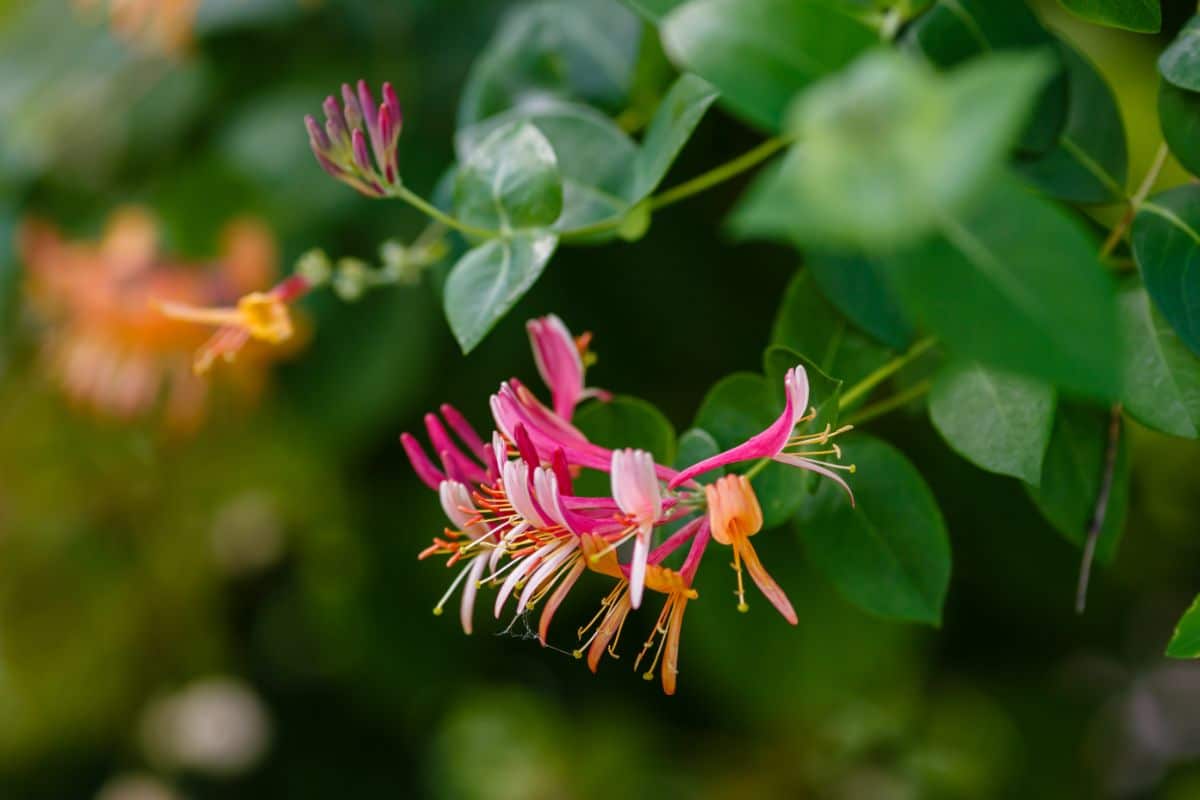
If you want to symbolize your strong bond and dedication, consider incorporating honeysuckle into your arrangement. The way honeysuckle grows by trailing and twining over obstacles, while still holding tight in any weather, represents the idea of loving bonds and commitment. Keep in mind that not all honeysuckle plants vine, so if you want to follow traditional floriography, search for vining honeysuckle varieties. It’s important to be cautious when gathering honeysuckle, as some types, like Japanese honeysuckle, are invasive and can quickly spread. Another plant that showcases dedication is ivy.
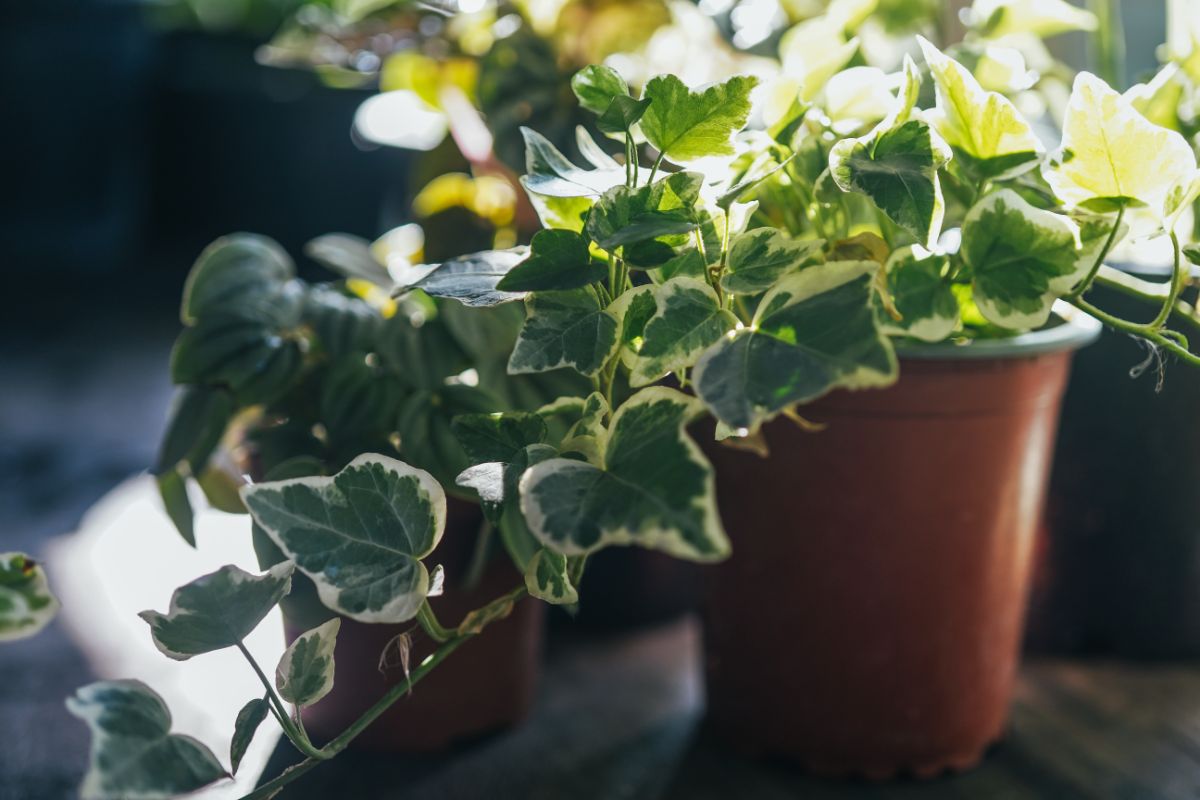
Ivy is a plant that represents strong emotional bonds such as deep affection, loyalty, and friendship. Its vine-like nature makes it difficult to remove once established, which adds to its symbolic value. While there are different types of ivy plants, English ivy is commonly grown in yards for its low maintenance needs and distinctive palmate leaves. However, it is important to keep an eye on its growth as it can become invasive. To control its spread, hanging baskets or planters on porches or patios are great options.
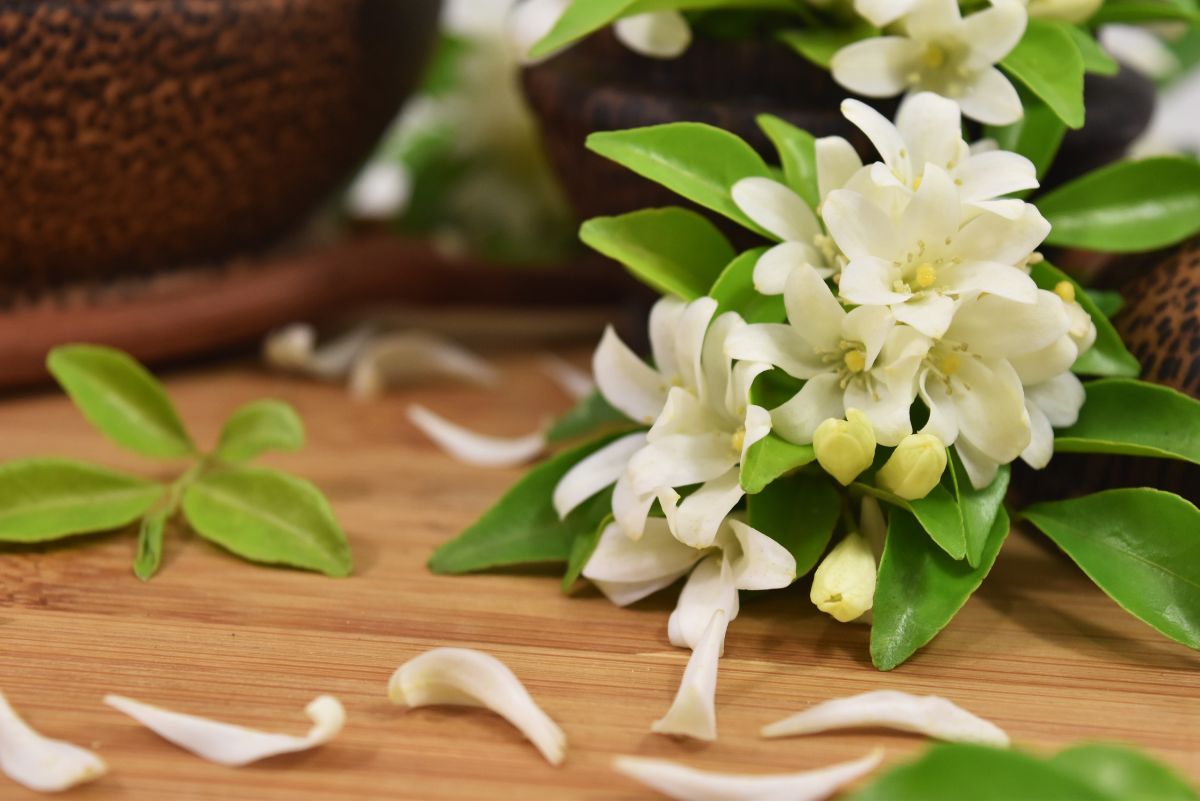
The meaning of the color Jasmine is dependent on the hue of the flower. It’s highly recommended for gardeners living in warmer climates to cultivate one or two jasmine plants. The fragrance of these plants is irresistible and adds a touch of elegance to any garden landscape or floral arrangement. Although jasmine is not particularly resilient in cold temperatures, it thrives in growing zones 7 to 10. While some jasmine varieties are climbing vines, others can be kept as groundcovers or specimen shrubs. In floral arrangements, white jasmine represents good feelings and innocent love, while yellow jasmine symbolizes grace and elegance. Morning glory is the next flower on our list.
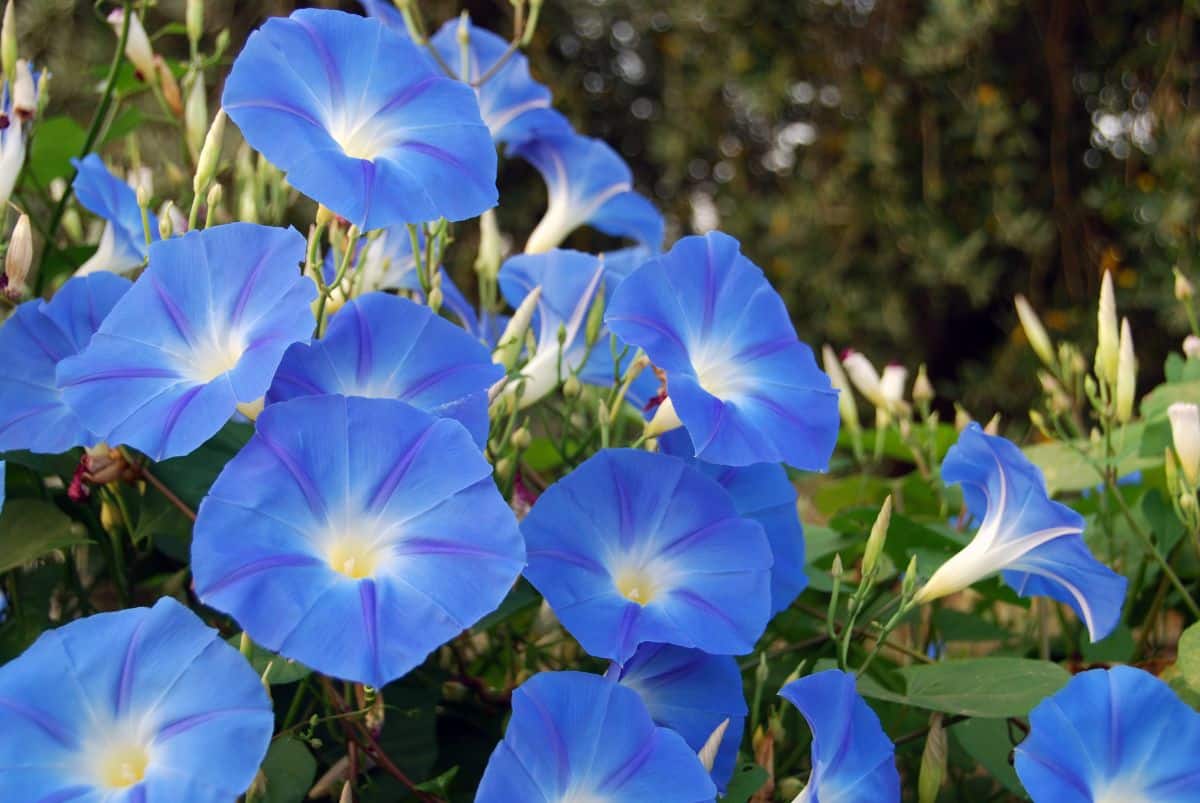
Morning glories have a special significance as they represent affection. This affection can be spread by gifting their seeds as a symbol of love. Although morning glories are not typically used in flower arrangements, they can still be incorporated into bouquets if handled delicately. Additionally, morning glory blooms can be pressed beautifully, or you can gift your loved ones with a package of morning glory seeds to express your love.
To grow morning glories, it is recommended to start them from seeds directly sown in garden beds. While it’s possible to start them indoors, it can be challenging as their vines tend to rapidly twine over grow shelves and lights. Once planted, it’s essential to provide sturdy support for morning glories as they love to climb. Overall, morning glories offer a simple yet charming way to spread love and affection to those around us.
Lastly, moss is also an interesting natural element that can add a unique touch to any floral arrangement.
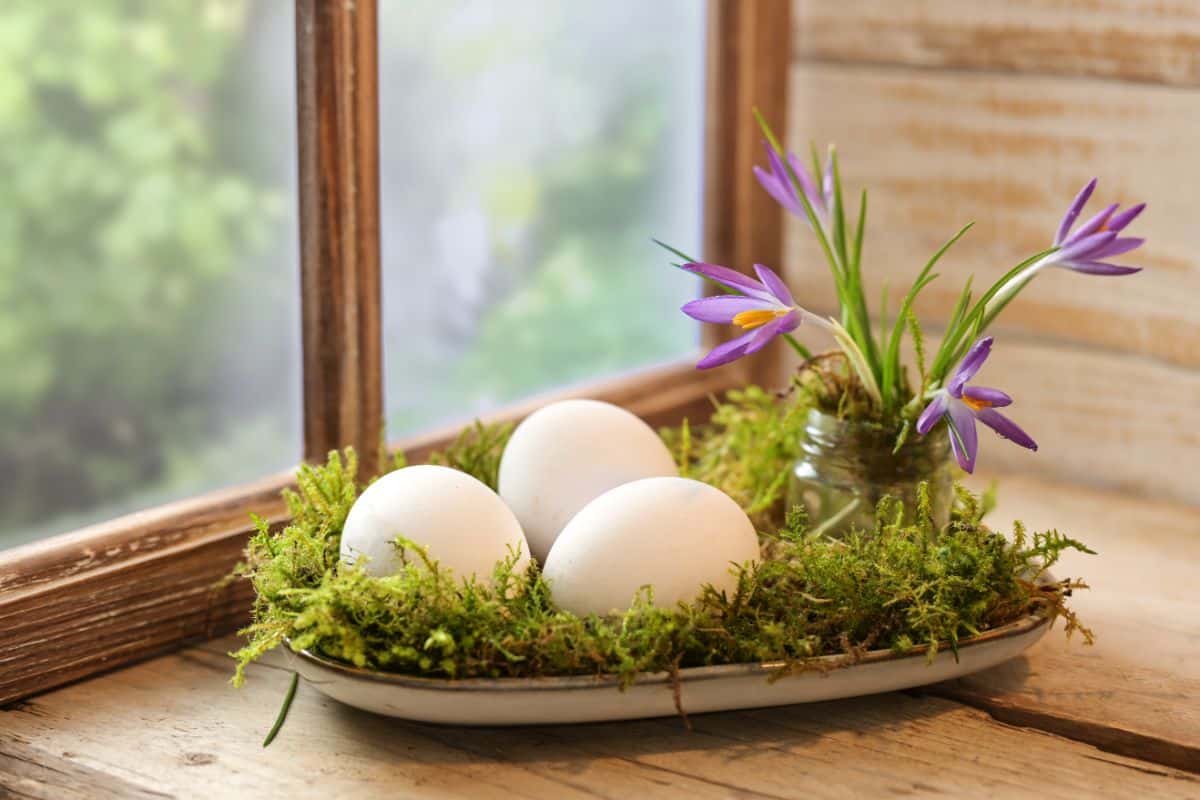
Moss is a great addition to any floral arrangement or potted plant, despite being an uncommon choice. Its unique aesthetic qualities make it a wonderful accent to any bouquet or centerpiece. Additionally, you can use dried moss in crafting or create beautiful terrariums as gifts for loved ones. Moss also holds symbolic value, representing the love of a mother, making it a thoughtful present for Mother’s Day. While there are a variety of ornamental mosses available for purchase, you may also be able to find some in the wild. However, it’s important to follow proper foraging protocols and only collect a small amount of the moss you come across.
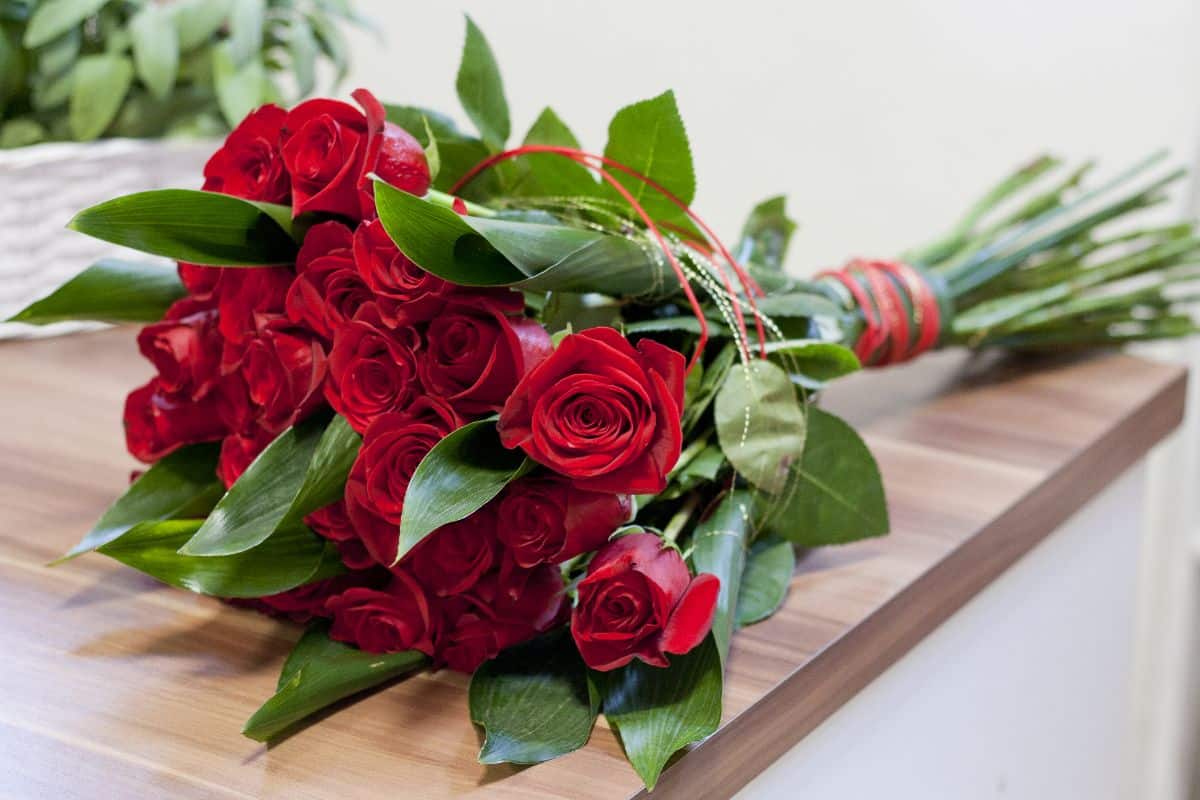
Sending a bouquet of roses is a timeless and classic way to express love and affection. However, the color of the roses can carry a different message. The Victorian era heavily used roses for symbolism, and their meanings are still remembered today. Red roses, commonly given on Valentine’s Day and wedding anniversaries, convey a romantic message of “I love you.” On the other hand, yellow roses symbolize infidelity, while dark crimson roses may suggest mourning. Pink and white roses have sweeter meanings and represent happiness and innocence. Lastly, salvia is another beautiful flower worth considering for gifting or decoration.
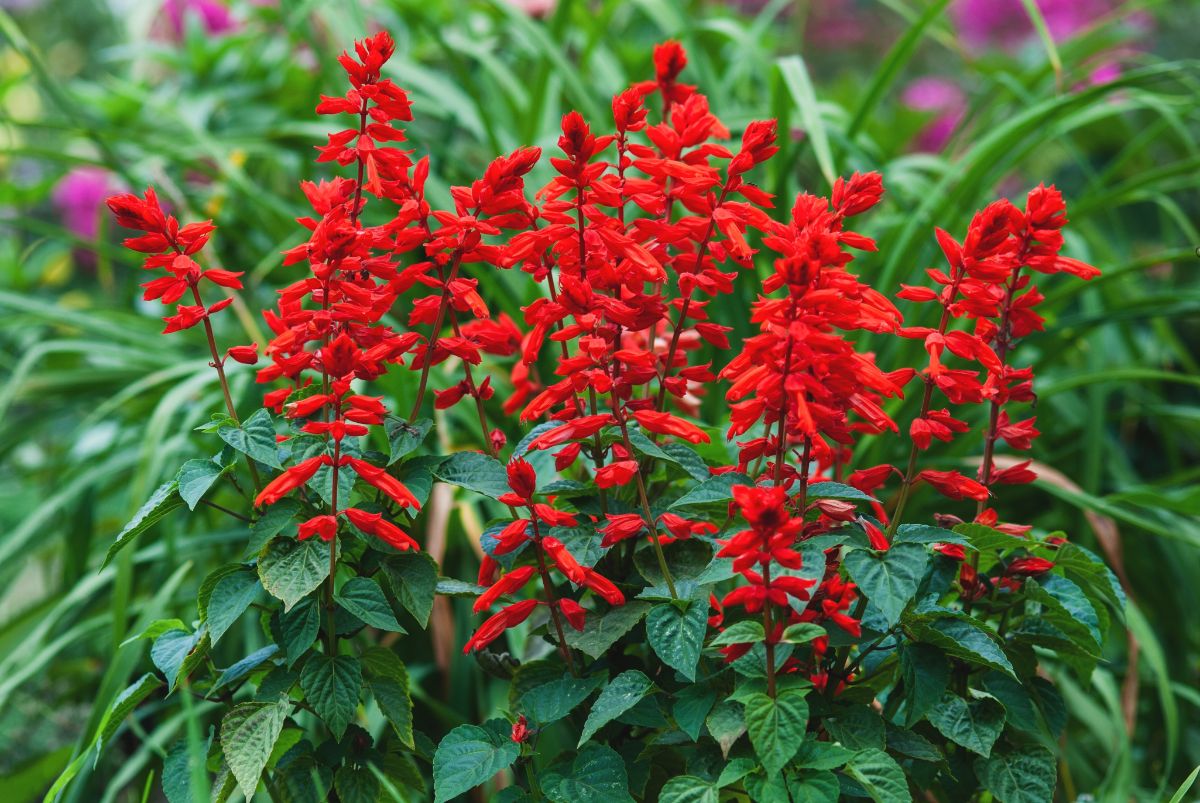
Salvias are plants often grown in pollinator gardens and come in different colors and sizes. They are easy to maintain and can grow perennially in cooler locations. Like roses, the various colors of salvias have their own meanings in floriography. Blue salvia signifies “I’m thinking of you,” while red salvia conveys “You’ll always be mine.” Moving on to another plant, Sorrel is up next.
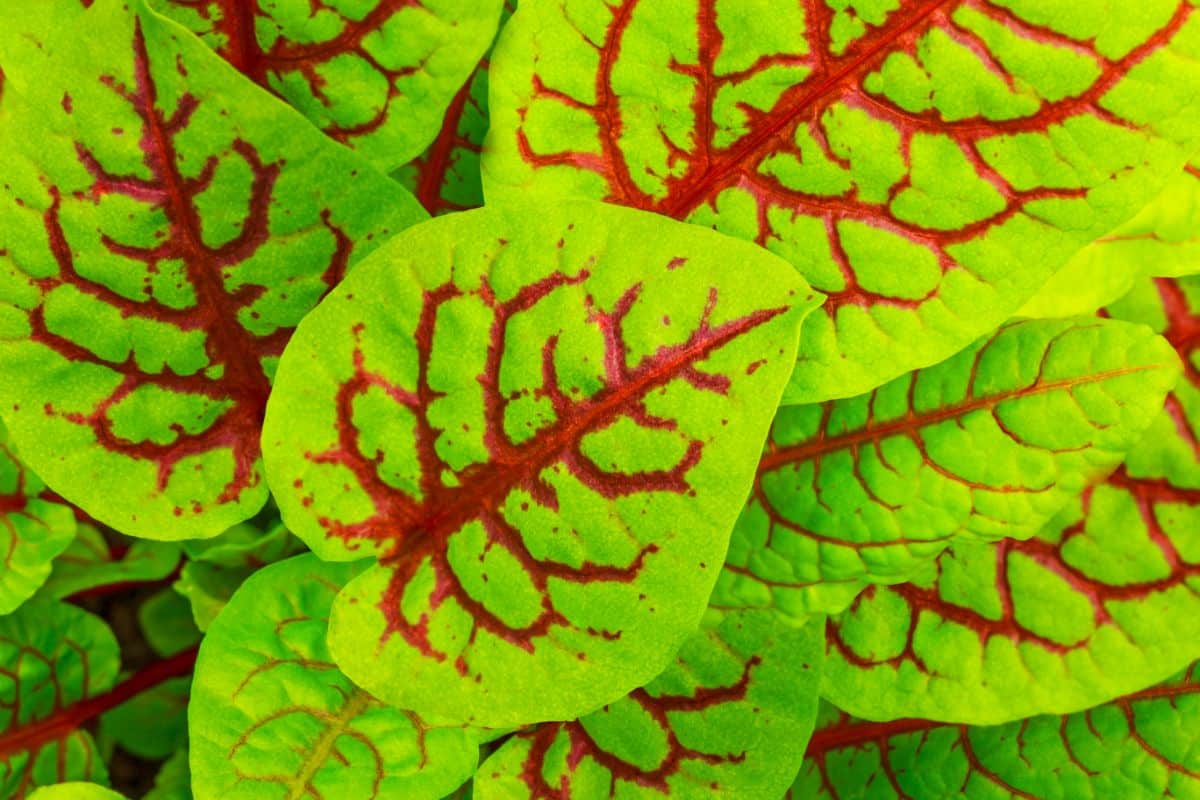
Spearmint can add a refreshing touch to both floral arrangements and culinary dishes. Its bright green leaves and sweet, minty scent make it a popular choice for herb gardens and tea blends. When used in floral arrangements, spearmint can add a pop of color and a unique fragrance to bouquets or centerpieces. In the language of flowers, spearmint represents warmth of sentiment or hospitality. Whether you choose to use it in your cooking or your floral arrangements, spearmint is sure to bring a fresh and inviting energy to any setting.
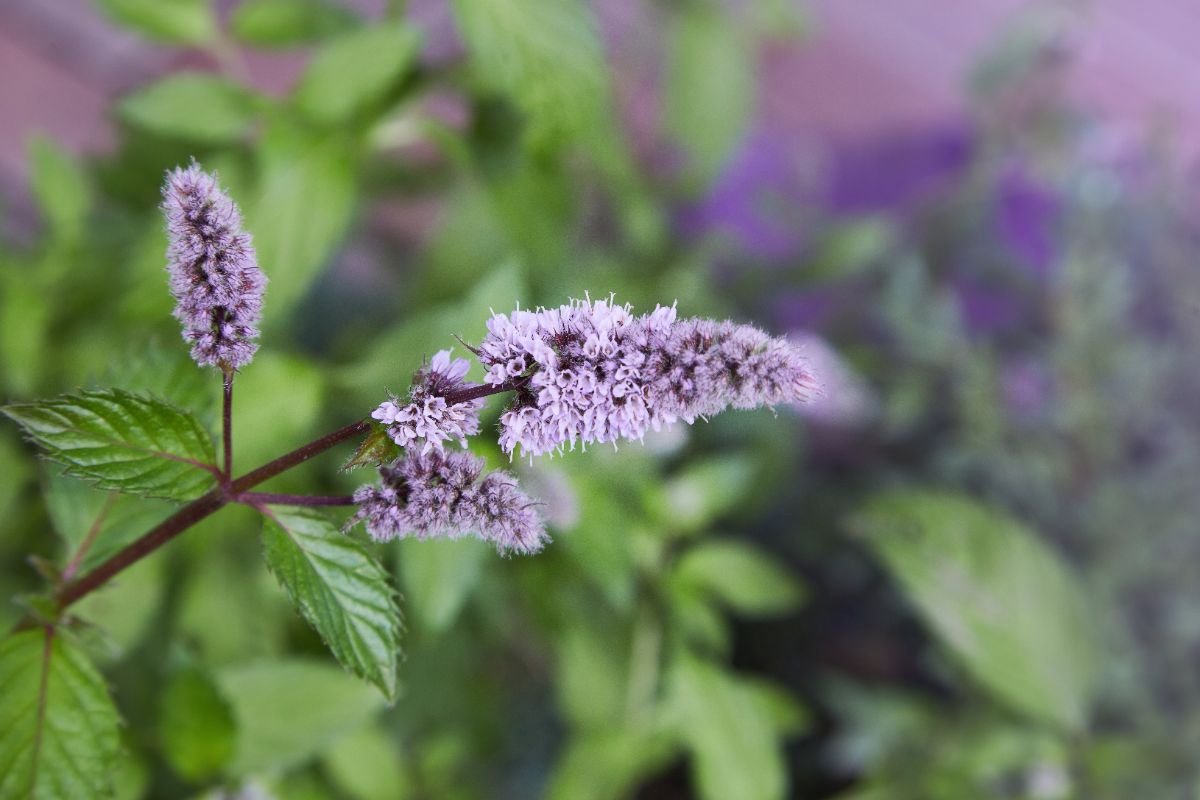
Dwarf sunflowers are a delightful addition to any garden. With their bright yellow petals and dark centers, these small sunflowers bring a burst of cheerfulness wherever they are planted. While regular sunflowers can grow quite tall, dwarf sunflowers stay compact and tidy, making them perfect for small gardens and container planting. As an added bonus, they attract pollinators like bees and butterflies, making them beneficial for the overall health of your garden. Whether you’re looking for a pop of color or a way to support local wildlife, consider planting some dwarf sunflowers this season.
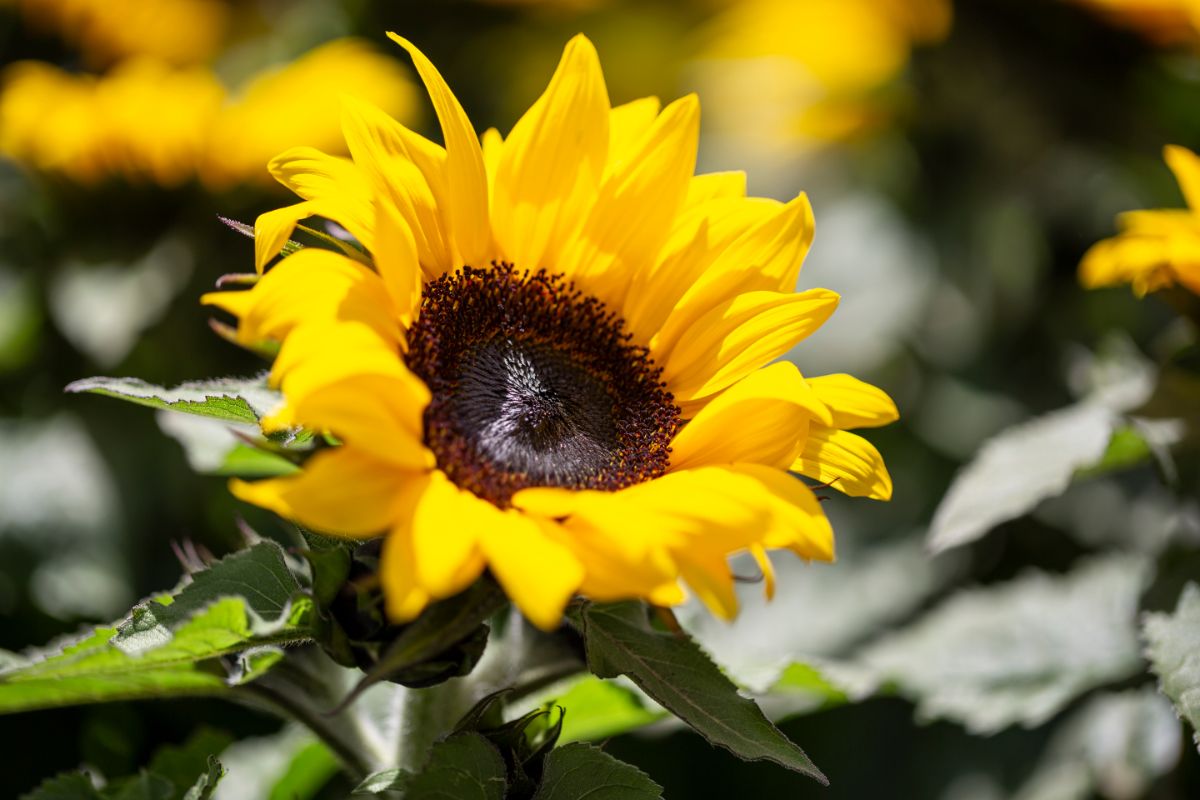
If you’re looking for plants to express your love, it’s best to choose the smaller varieties of sunflowers rather than the tall ones. While tall sunflowers are great for adding to a garden and providing food for birds and humans, they can also communicate arrogance – not the message you want to send to your loved ones. In contrast, dwarf sunflowers such as the “Teddy Bear” variety have the same sunny disposition, but their short height makes them a symbol of adoration.
Dwarf sunflowers come in a variety of colors, including yellow, white, and bronze. They typically grow up to a height of one foot, making them perfect for growing in containers or along the borders of flower and vegetable beds. Additionally, sunflowers are excellent pollinator plants that can help increase the yields of nearby vegetables like squash and zucchini.
In summary, when it comes to expressing love through plants, consider choosing dwarf sunflowers over their taller counterparts.
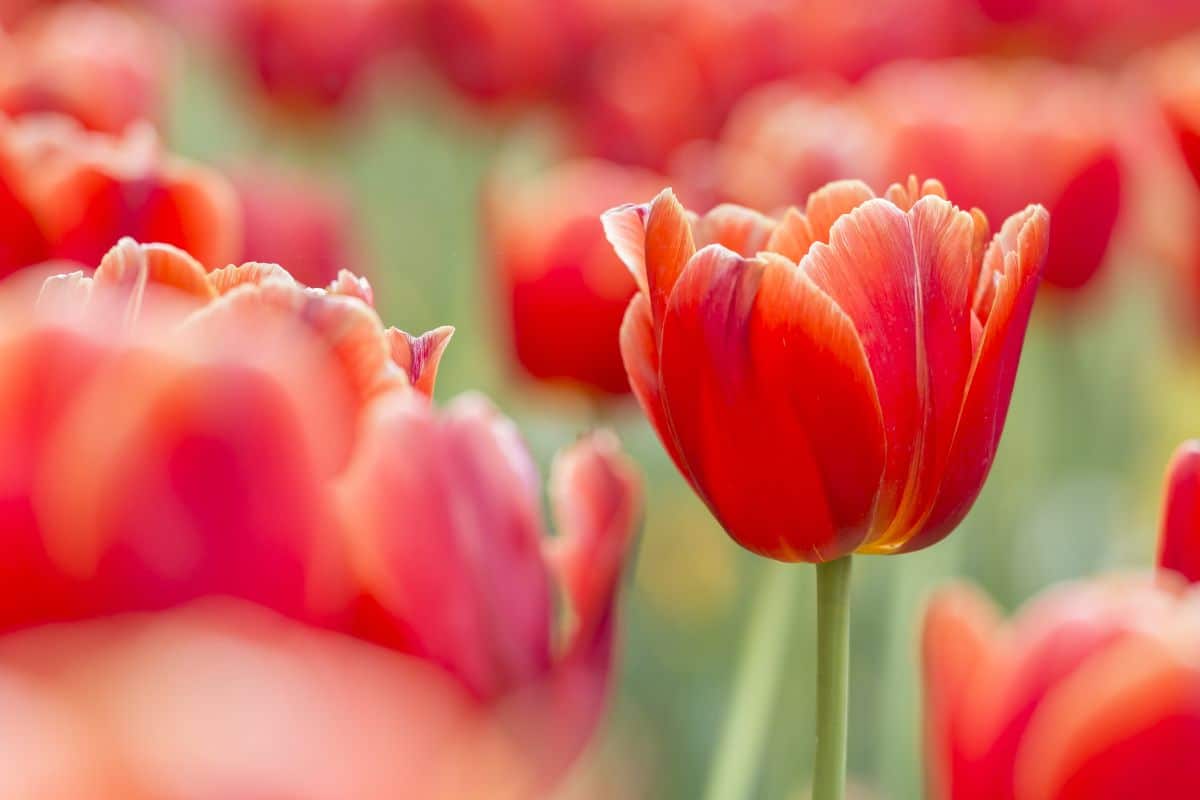
Express your affection with a bouquet of tulips – go for fiery red to declare your love or choose sunny yellow for a warm and subtle message. Tulips offer an array of colors that suit any preference, but when it comes to romance, red and yellow are the top picks according to the language of flowers. Red tulips signify passion and are perfect for declaring your love, while yellow tulips exude a more gentle energy, conveying the message “your smile brightens up my day.” Tulips bloom in early spring, and although they come in a variety of colors, their bulbs are usually planted in the fall. In areas with colder climates, overwintering can be challenging, but planting the bulbs at a depth of around 6″ can increase the chances of them growing perennially.
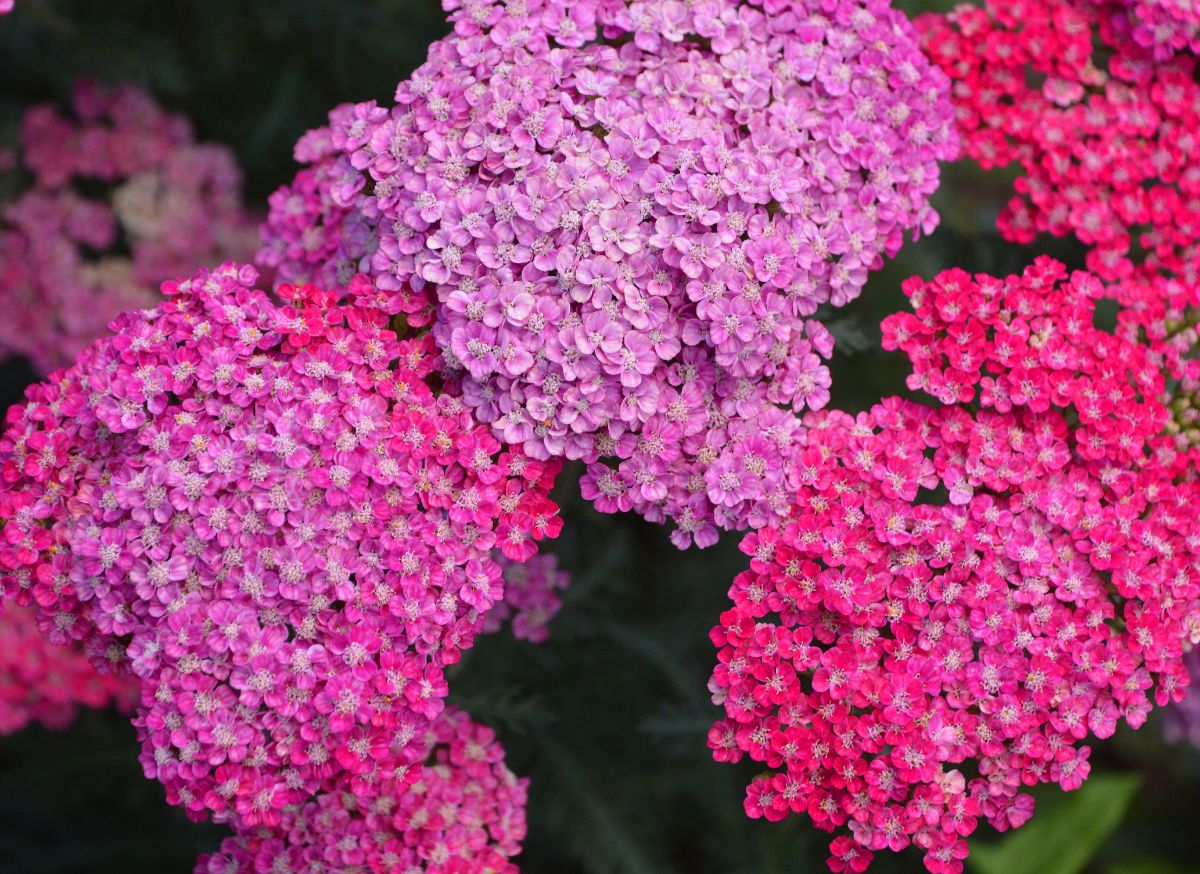
Yarrow is a versatile and popular plant that has been used for medicinal purposes for generations. It also attracts pollinators with its broad, flat blooms, making it a great addition to any garden. Yarrow is perfect for drying and cut flower arrangements, and both fresh and dried flowers can be used in any design. Additionally, yarrow symbolizes long-lasting love according to the Victorian language of flowers. While wild yarrow can be found along roadsides and hiking trails, it is also available at local garden centers in yellow or pink varieties. All three colors can be used in floriography to convey various meanings.
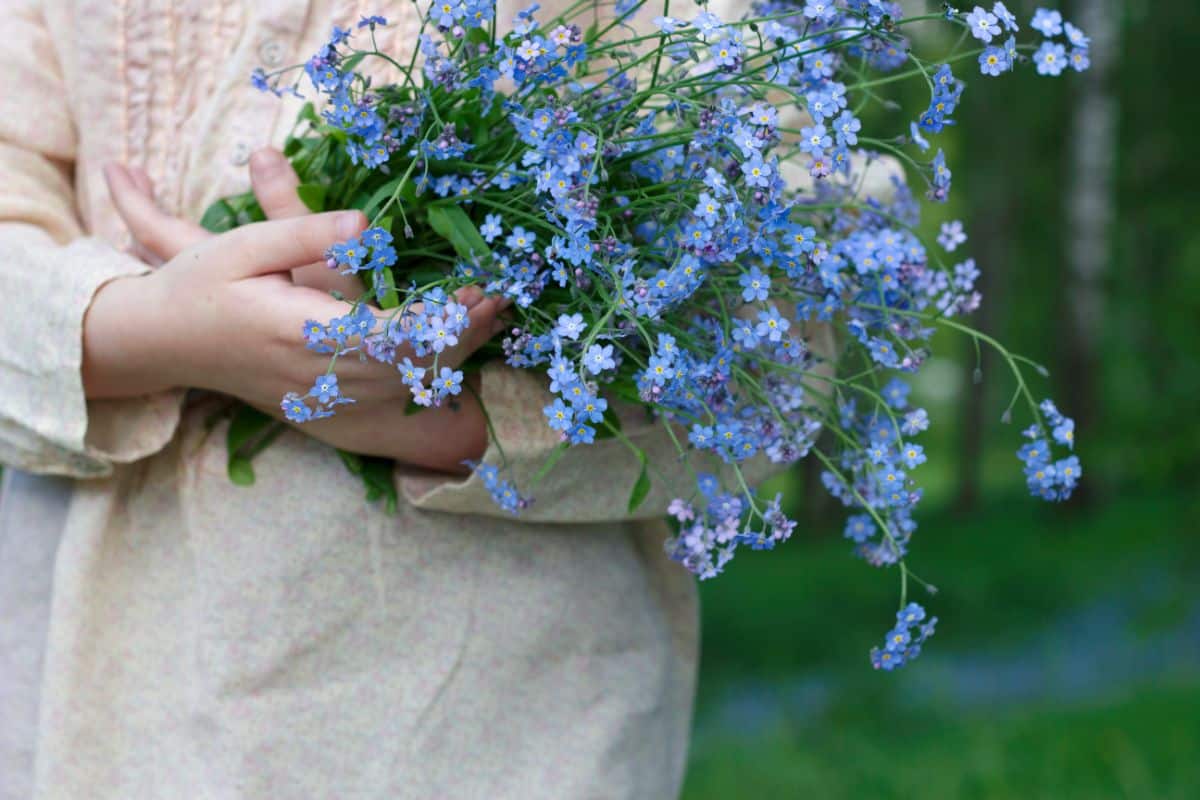
Express your feelings and emotions by sending flowers and plants that speak volumes without uttering a single word! Whether it’s Valentine’s Day, anniversaries, weddings, or any other special occasion, homemade bouquets are the perfect way to celebrate your loved ones. While traditional flower arrangements are always a classic choice, you can take it up a notch by experimenting with the Victorian language of flowers. Embodying history, sentiment, and symbolism, floriography provides a unique way to express yourself, adding deeper meaning to your floral arrangements and bouquets.
For those who enjoy working with plant symbolism, our guide on the best houseplants to cultivate for good Feng Shui, prosperity, and luck is also worth checking out.
